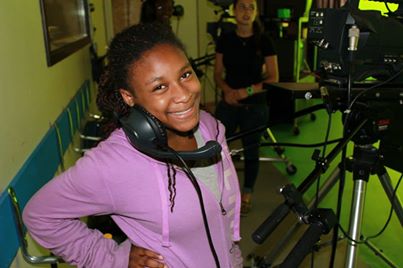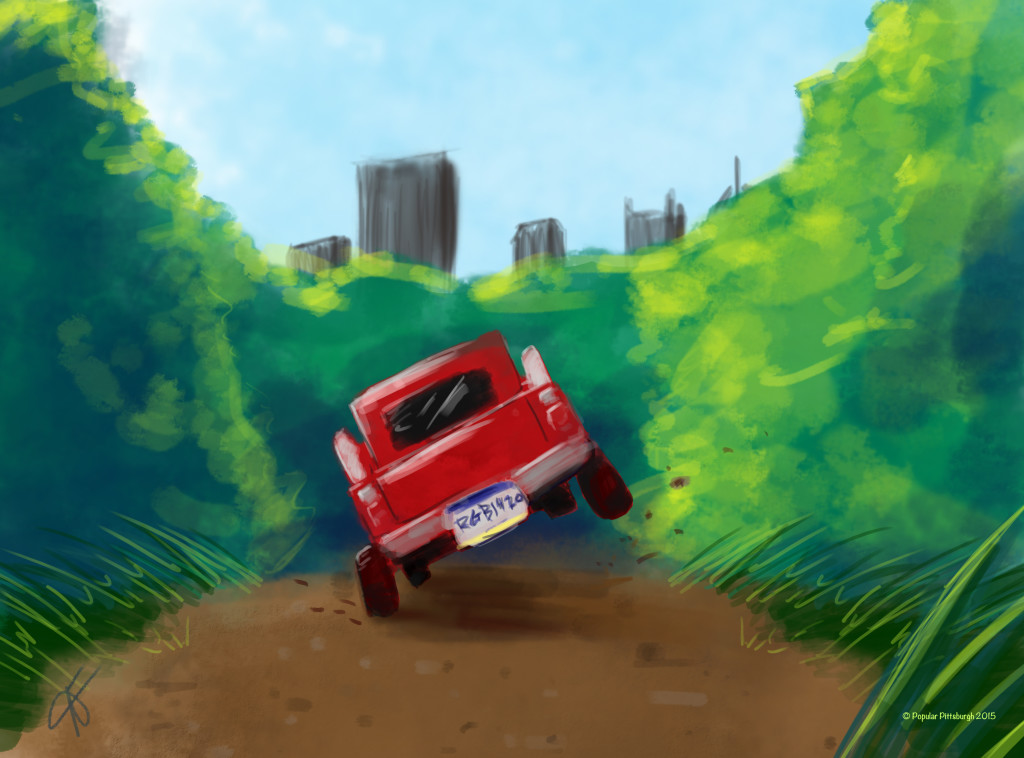
PCTV: Pittsburgh’s Newly Renovated, High-Tech Soapbox
September 14, 2015
PCTV’s Paul Eugene Fitness Gospel Aerobics
September 29, 2015Opinion
by Julie Long
Drive a half-hour outside of downtown Pittsburgh and you’ll find yourself in the country. It’s one of the wonderful things about Pittsburgh, in my opinion, that we can enjoy the rural life and still be so close to the city (or vice versa for you city dwellers). If you head north on Rt. 28, then west on Rt. 910, you’ll come to West Deer Township. My neck of the woods.
Most people don’t know where this is, and it’s not easy to give them a point of reference. If you’ve ever been to Hartwood Acres, we’re a bit further out than that. Pittsburgh Mills is down the road, so if you’ve reached it you’ve gone too far. If you’ve been to La Casa Narcissi Winery, you were on the southernmost edge of West Deer Township. Actually, the winery (a fairly recent addition) may be the only attraction that is known beyond the township’s borders. This is a township of local businesses, not chains: Emerling Cream instead of Dairy Queen. The Deer Lakes Diner instead of Eat’n Park. And dive bars instead of Dive Bar.
There’s not much going on out here. We like it that way. But it is not without its challenges. Particularly in our little corner of the township. Our home only recently gained access to city water, a paved road, and a street address versus a Rural Route number. Oh, and we don’t have cable TV. Not by choice, there simply is no cable to tap into. We’ve had to rely on satellite since the days of those huge dish receivers.
What West Deer lacks in convenience it makes up for in the beauty of undeveloped land. Acres of woods. Farm fields of hay and corn. Winding two-lane roads. (When my mother used to visit from California she’d ask, “Can’t we take a main road to get where we’re going?” To which I’d have to explain, “This is a main road.”)
Our home sits on the edge of a big square of undeveloped land, perhaps 300 acres all told, owned by a handful of families who have left the land wild or utilize the acres as farmland. It’s a bucolic setting, one I feel thankful for every day. Except, that is, for two long months this summer, when our two-mile road was closed at one end, making for one heck of a detour.
Our course, all Pittsburghers suffer through detours. There is always a road or a bridge under repair. But when the only way to get anywhere involves driving around the perimeter of 300 acres, you start finding reasons to stay home. The detour first took us one mile in the complete opposite direction from where we wanted to head, then left for another couple of miles, then another left for another mile or so. All three roads are curvy and bumpy and make for slow going. Nearly five miles and 15 minutes later, we would arrive at a point maybe a 1/4 mile from our house; so pretty much back at square one, just on the other side of the road block.
Eventually, like most Pittsburghers facing a detour, we made up our own alternate route. Only, ours involved cutting through a field using a rutty old farm road (“road” being a relative term), then through the equipment yard of our neighbor (“neighbor” being another relative term).
That’s another nice thing about rural living: the house next door may not even be visible, but that doesn’t stop anyone from being neighborly when you need it.
JULIE LONG has called the rural outskirts of Pittsburgh her home since 1990. Before that, she lived in the sprawling metropolis that is Southern California. But she hails from a small town in the Midwest that just happened to become the center of the Transcendental Meditation movement and inspired her novel ROOVILLE (Sept 2015, SparkPress).




